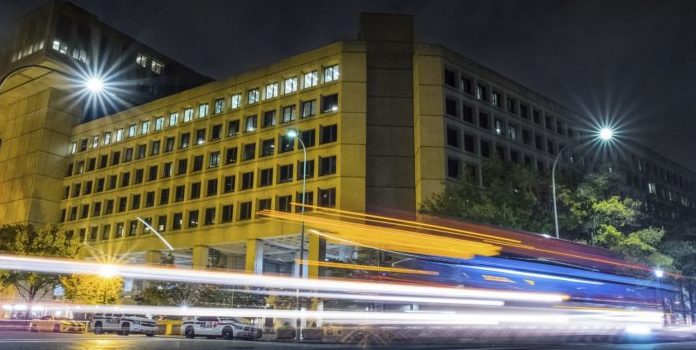(Ken Silva, Headline USA) An FBI whistleblower has provided Headline USA with records showing that the bureau appears to be ignoring congressional inquiries into his allegations.
Former FBI special agent William McGrath says he faced retaliation for refusing an order that would have compromised the life of a confidential informant. He also says FBI officials perjured themselves when the Department of Justice investigated his complaint, and that they lied to Congress about what transpired during the DOJ investigation.
McGrath was interviewed by the Senate Homeland Security Committee about these allegations last February, and in September he signed a release form allowing the committee to obtain information about his case from the FBI.
However, the FBI has apparently ignored the Senate committee’s inquiries into McGrath’s matter. The FBI whistleblower provided Headline USA with emails showing that the FBI had not responded to the committee by November, and still hasn’t responded to date.
“I have not received a response from the FBI,” a committee staffer told McGrath last week. “I will follow up with you as soon as I receive one.”
McGrath told Headline USA that he thinks the FBI may be stonewalling the committee on his matter.
“If there’s nothing to hide, then just provide the information to the committee. If it was favorable to the bureau, there would be no reluctance,” he said.
The FBI declined to comment on McGrath’s complaint, telling Headline USA that “allegations of misconduct are referred to the Department of Justice’s Office of the Inspector General for review and potential investigation.”
William McGrath’s saga stems from more than 25 years ago, when he was investigating Russian organized crime for the bureau in 1997.
According to McGrath, his bosses at the bureau wanted him to use a confidential informant to record a phone call with a prominent New York politician. McGrath declined to name the public official on the grounds that he was never charged with a crime, but said the person is still in politics and holds a more prominent position today than he had in 1997.
McGrath said his informant’s identity and life could have been jeopardized if he made that recorded phone call sought by his bosses. McGrath also said the top bureau officials were seeking to circumvent the informant’s handler, which would violate FBI guidelines and can erode trust between informants and their handlers.
When the New York officials insisted on using the informant against McGrath’s wishes, he resigned from the FBI on Dec. 5, 1997.
McGrath later found out that the FBI labeled him AWOL on the day of his departure, which he said shocked and angered him.
He filed an internal whistleblower complaint in 1998, alleging that the FBI’s AWOL designation was retaliation for his resignation.
The FBI disputed his allegations until McGrath’s whistleblower complaint was finally successful in 2007, when the DOJ’s Office of Attorney Recruitment and Management found that the FBI incorrectly labeled him AWOL—ordering the bureau to pay him $13,422 in legal costs and four hours of docked pay.
During his whistleblower proceedings, McGrath also found that an FBI official lied by telling the DOJ that the informant’s handler had approved the recorded phone call. While the handler said the informant could make the phone call, he did not want the call to be recorded because then the informant would potentially have to testify in court and reveal his or her identity, according to records provided by McGrath.
However, the administrative process failed to take any action against the FBI officials. OARM dismissed McGrath’s other allegations, including that FBI officials gave him negative performance reviews and provided false information to other prospective employers.
McGrath tried to take his case to the courts, but U.S. District Judge Shira Scheindlin struck down his whistleblower lawsuit against the FBI in April 2008. The judge said the law doesn’t afford the same whistleblower protections to FBI agents as it does to other government employees.
McGrath has lobbied various congressional bodies to look into his complaints over the years, to little avail.
At one point, the FBI told Congress that the DOJ already investigated McGrath’s complaints but found no wrongdoing. This is another lie, according to McGrath, because the DOJ never investigated the false statements made by FBI officials during his whistleblower proceedings.
With the FBI apparently stonewalling the Senate Homeland Security Committee’s inquiry into his matter, McGrath said he may eventually take his complaint to the newly formed House Select Committee on the Weaponization of the Federal Government—a committee modeled after the 1970s-era “Church” committee that investigated FBI and CIA malfeasance.
“They seem to want to look at how the FBI was weaponized against Trump, so my investigation may not be as interesting to the committee,” McGrath said. “But if they’re looking at it in a bipartisan way, I think it would interest them.”
Ken Silva is a staff writer at Headline USA. Follow him at twitter.com/jd_cashless.

